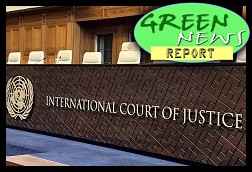 2024 begins with long-overdue good news for the voters of Wisconsin.
2024 begins with long-overdue good news for the voters of Wisconsin.
Three days before Christmas, by way of a 4-3 decision, the Wisconsin Supreme Court overturned the most recent of two GOP drawn state legislative maps. The two maps were the product of partisan gerrymandering that was so extreme that it permitted the Republican Party to maintain supermajority (2/3) or near supermajority control of both chambers of the Badger State Legislature over the past 12 years --- even when Democrats received as much as 53% of the statewide vote.
The detailed procedures for drawing up new maps in time for the state's 2024 primary elections are set forth in the Court's Post Decision Order, maximizing, at long last, the prospect of a state Legislature whose members will be politically accountable to the will of a majority of the Wisconsin electorate.
If timely developed and approved, the new 2024 maps will permit a majority of WI voters to put an end to a decade-long GOP gerrymandered entrenchment in the state Assembly, though a majority of voters will not be empowered to fully eradicate GOP entrenchment in the WI Senate until 2026. Because it would have been tantamount to overturning the results of the 2022 election, the Court denied the petitioners' request that it compel those Senators, whose terms would not otherwise expire until 2027, to run for reelection in 2024...
A decade of political gerrymandering
As we previously detailed, back in 2010, before the great GOP gerrymanders, WI Democrats had trifecta control in the state, with a Democratic Governor and narrow majorities in the Badger State Assembly and Senate. As a result of the same low-turnout, 2010 midterm election that permitted Republicans to secure a majority in the U.S. House of Representatives, trifecta control in WI was narrowly flipped to the Republican Party. The low-turnout came at the worst possible time for WI voters.
In 2011, the new GOP trifecta engineered and enacted radically-reshaped, partisan gerrymandered maps that ensured their party would remain entrenched in power in the WI Legislature for the remainder of the decade.
By 2021, the GOP no longer had trifecta control. A Democrat occupied the Governor's mansion. But the GOP's legislative maps produced following the 2020 Census were even more gerrymandered than their previous ones. They were vetoed by WI's Democratic Gov. Tony Evers. The GOP lacked the seats needed to override the veto in the Assembly. A then 4-3 right-wing WI Supreme Court majority, in Johnson v. Wisconsin Elections Commission, effectively overrode Evers veto when it approved the same 2021 GOP-drawn legislative maps.
Last April, however, control of the WI Supreme Court was flipped by voters in a statewide election. Pro-choice Judge Janet Protasiewicz defeated her right-wing judicial opponent "by 11 percentage points, a huge margin in a narrowly divided state," as The New York Times described it.
In August, one day after Protasiewicz was seated, a group of Wisconsin voters (the "Clarke petitioners") --- later joined by a group of mathematicians and computer scientists, and, eventually, by Evers --- filed a petition that asked the state's High Court to to overturn the 2021 legislative maps.
The petitioners alleged that the Court, in Johnson, usurped the Governor's constitutional veto power and that the 2021 map violated the state Constitution because it was the product of extreme partisan gerrymandering. Petitioners also alleged the map violated a provision of the WI Constitution that mandates each District consist of contiguous territory. Moreover, the Clarke petitioners asked the Court to issue an extraordinary writ (a "writ of quo warranto") that would require all members of the Wisconsin Senate, including those whose terms would not otherwise expire until 2027, to face reelection in newly drawn districts in 2024.
Because it would require "extensive fact-finding", the Court's liberal majority did not decide whether extreme partisan gerrymandering violates Wisconsin's Constitution. It also did not decide whether the former right-wing majority, in Johnson, unconstitutionally usurped by Governor's veto power. It didn't have to.
The Wisconsin Constitution mandates that each legislative District consist of "contiguous territory". Violations of that constitutional mandate were so pervasive --- "at least 55 of the 99 assembly seats," the Court noted, "and...20 of the 33 senate seats" contained "territory that was disconnected from the rest of the district" --- that the majority found it necessary to toss out the GOP's unconstitutionally drawn 2021 maps upon that basis alone.
The Court has now blocked the use of the 2021 maps by the Wisconsin Election Commission in future elections.
Judicial vs. Legislative drawn new maps
Whatever else made be said of the Court's new liberal majority, it is certainly not naïve.
In both its decision and in its Post Decision Order, the majority acknowledged that it is the Legislature, and not the Court, that has primary responsibility for drawing up new maps. Accordingly, it encouraged the WI legislature to immediately begin working on new, fairly drawn Districts.
However, given the GOP's track record for producing rigged maps, Governor Evers's previous wielding of his constitutionally vested veto power, and the need to have fair legislative maps in place well before Wisconsin's August 2024 legislative primary elections, the Court initiated a process towards the creation of alternate, judicially drawn and approved legislative maps.
In her dissent to the Post Decision Order, right-wing Justice Rebecca Bradley complained that, by undertaking to develop a judicial map before the legislative process has been completed --- a map to be used only in the event that the Legislature and Governor cannot come to terms on their own --- the Court majority usurped the Legislature's map making power. That criticism isn't remotely accurate.
The Decision and Order entail simultaneous map drawing along two parallel tracts --- legislative and judicial. If the Legislature draws up a fair, constitutionally compliant map that is signed into law by the Governor in advance of the August 2024 primaries, the new Legislative maps will be in effect for the remainder of the decade. If the GOP-controlled legislature draws up a constitutionally infirm, partisan gerrymandered map that is then vetoed by the governor, the Court will be in a position to quickly approve a judicially-drawn map.
And it's not like the Legislature has no say in the development of a judicially drawn map.
The Legislature is a party to the judicial proceeding. Per the decision, "each party may file a remedial map, one or more expert reports...and supporting materials" in compliance with the legal parameters set forth by the Court, including certain "technical specifications and data requirements" that will be provided by two Court-appointed expert consultants, UC Irvine Professors Bernard Grofman and Jonathan Cervas.
The Court also provided each party with the ability to respond to the map proposals submitted by any of the other parties.
Remedial elimination of partisan gerrymandering
As noted above, because it would have required "extensive fact-finding", the Court didn't address the petitioners' assertion that extreme partisan gerrymandering violates the WI Constitution. Nonetheless, avoidance of partisan gerrymandering is a central component of its remedial order.
Both the Decision and the Order not only mandate territorial contiguity for all new Assembly and Senate districts, but also mandate that "remedial districts must comply with population equality requirements --- with little more than de minimis variation"; that districts must be "compact" and must comply with federal law, including Equal Protection and the Voting Rights Act.
Importantly, the Court will "consider partisan impact when evaluating remedial maps".
While courts must remain "politically neutral," the majority explained, neutrality doesn't provide a court with "a license to enact maps that privilege one political party or another"...
Last word
State Republicans have vowed to elevate the matter to the U.S. Supreme Court. However, the decision to overturn the 2021 map is exclusively based upon Wisconsin law. The process for remedial map development is designed to meticulously comply with federal law. Thus, there is no legal basis for Wisconsin Republicans to contest either this decision or a new remedial map in the U.S. Supreme Court, though it doesn't mean they won't try.
But, the ultimate decision as to the future political make-up of the Wisconsin state Assembly and Senate, will finally rest with Wisconsin's voters.
UPDATE 1/15/24: On 12/28/23 the GOP-controlled WI Legislature filed a Motion which asked the Wisconsin Supreme Court to "reconsider" its decision. The GOP argued that, among other issues, the Court's decision and order failed "to give the Legislature a reasonable opportunity to redistrict and apply" what the WI Republicans derisively referred to as the Court's new "contiguity rules".
In addition to the multiple petitioners, Gov. Evers filed a formal Response, noting: (a) a motion for reconsideration does not provide an opportunity to reargue issues already decided. It must be based on "newly discovered evidence or…a manifest error of law or fact"; (b) "both the calendar and the Legislature's past practice show that it has ample opportunity to adopt its own maps."
On 1/11/24 the WI Supreme Court majority issued a terse Order denying the GOP motion to reconsider.
One day later, multiple parties complied with the Court's deadline to file proposed maps, expert reports and briefs in support of proposed, judicially approved new maps.
Despite the denial of the motion to reconsider, the WI GOP-controlled Legislature, in its Opening Brief, continued to contest the majority's determination that non-contiguity was so pervasive that the majority, in its decision and order, found it necessary to toss out the entirety of the GOP's unconstitutionally drawn 2021 map.
The ability of the governor and multiple petitioners to file proposed maps, expert reports and supporting briefs by 1/12/24 belies the entrenched GOP's assertion that there is insufficient time for it to independently create a legislatively-drawn map that complies with the criteria set forth in the majority's 12/22/23 decision and order. Indeed, the GOP's latest brief merely reflects its unwillingness to either draw up its own legislative map or to submit a proposed judicial map that complies with the majority's fair map criteria.
The significant gap between the compliant map proposed by Gov. Evers and the GOP legislators' continued resistance to the judicially approved criteria for new maps reflects a likelihood that (a) the legislature would produce a deficient map, and (b) that Gov. Evers would veto a deficient legislatively drawn map. This underscores the Court's sound reasoning in proceeding with a judicially drawn map process while simultaneously providing the legislature with an opportunity to develop a compliant map.
UPDATE 2/19/24: Wisconsin's Democratic Gov. Tony Evers signed into law a measure passed by the GOP-controlled State Legislature that was based upon a proposed map that Evers had submitted to the WI Supreme Court.
In their detailed Report, the court-appointed expert consultants determined that the Evers map complied with all of the Court's criteria, including, to the extent possible, the elimination of partisan bias.
Although a number of Democrats "expressed concern" about the new map because it would not apply to intervening special elections between now and November, the new compliant map will likely end the existing litigation.
 Ernest A. Canning is a retired attorney, author, and Vietnam Veteran (4th Infantry, Central Highlands 1968). He previously served as a Senior Advisor to Veterans For Bernie. Canning has been a member of the California state bar since 1977. In addition to a juris doctor, he has received both undergraduate and graduate degrees in political science. Follow him on twitter: @cann4ing
Ernest A. Canning is a retired attorney, author, and Vietnam Veteran (4th Infantry, Central Highlands 1968). He previously served as a Senior Advisor to Veterans For Bernie. Canning has been a member of the California state bar since 1977. In addition to a juris doctor, he has received both undergraduate and graduate degrees in political science. Follow him on twitter: @cann4ing


 A Pu Pu Platter of Trump Corruption: 'BradCast' 7/29/25
A Pu Pu Platter of Trump Corruption: 'BradCast' 7/29/25  'Green News Report' 7/29/25
'Green News Report' 7/29/25
 GOP Cuts to Medicaid, Medicare, ACA Could Trigger 'Catastrophic' Crisis This Fall: 'BradCast' 7/28/25
GOP Cuts to Medicaid, Medicare, ACA Could Trigger 'Catastrophic' Crisis This Fall: 'BradCast' 7/28/25 Sunday 'Pedo Files' Toons
Sunday 'Pedo Files' Toons Landmark Climate Ruling at World Court; More Epstein Trouble for Petty Little Tyrant: 'BradCast' 7/24/25
Landmark Climate Ruling at World Court; More Epstein Trouble for Petty Little Tyrant: 'BradCast' 7/24/25 'Green News Report' 7/24/25
'Green News Report' 7/24/25 Trump's Epstein 'Conspiracy Machine Not Going Away': 'BradCast' 7/23/25
Trump's Epstein 'Conspiracy Machine Not Going Away': 'BradCast' 7/23/25 Dems Unlikely to Counter GOP's TX Redistricting Scheme: 'BradCast' 7/22/25
Dems Unlikely to Counter GOP's TX Redistricting Scheme: 'BradCast' 7/22/25 'Green News Report' 7/22/25
'Green News Report' 7/22/25 Not a Drill!: Trump Gutting News Media, Press Freedoms: 'BradCast' 7/21/25
Not a Drill!: Trump Gutting News Media, Press Freedoms: 'BradCast' 7/21/25 Sunday 'Wonderful Secret' Toons
Sunday 'Wonderful Secret' Toons 'Green News Report' 7/17/25
'Green News Report' 7/17/25 CO Election Clerks Block Vote System Breach: 'BradCast' 7/17/25
CO Election Clerks Block Vote System Breach: 'BradCast' 7/17/25 'Superman is Story of America'. No Wonder MAGA Hates Him: 'BradCast' 7/16/25
'Superman is Story of America'. No Wonder MAGA Hates Him: 'BradCast' 7/16/25  Trump IRS: Churches May Endorse. (Are All Nonprofits Next?): 'BradCast' 7/15/25
Trump IRS: Churches May Endorse. (Are All Nonprofits Next?): 'BradCast' 7/15/25 Support for Immigrants Skyrockets Amid Trump's Crackdown: 'BradCast' 7/14/25
Support for Immigrants Skyrockets Amid Trump's Crackdown: 'BradCast' 7/14/25  Democracy STILL Our Best Way Out of This -- And Repubs Know It: 'BradCast' 7/10/25
Democracy STILL Our Best Way Out of This -- And Repubs Know It: 'BradCast' 7/10/25 'Mass Shooter Subsidy'?: More Dumb, Deadly Stuff in Trump's New Law: 'BradCast' 7/9/25
'Mass Shooter Subsidy'?: More Dumb, Deadly Stuff in Trump's New Law: 'BradCast' 7/9/25  Trump's New Law Supersizes ICE, Mass Detention: 'BradCast' 7/8/25
Trump's New Law Supersizes ICE, Mass Detention: 'BradCast' 7/8/25 Texas Flooding Tragedy Was Both Predictable and Predicted: 'BradCast' 7/7/25
Texas Flooding Tragedy Was Both Predictable and Predicted: 'BradCast' 7/7/25
 VA GOP VOTER REG FRAUDSTER OFF HOOK
VA GOP VOTER REG FRAUDSTER OFF HOOK Criminal GOP Voter Registration Fraud Probe Expanding in VA
Criminal GOP Voter Registration Fraud Probe Expanding in VA DOJ PROBE SOUGHT AFTER VA ARREST
DOJ PROBE SOUGHT AFTER VA ARREST Arrest in VA: GOP Voter Reg Scandal Widens
Arrest in VA: GOP Voter Reg Scandal Widens ALL TOGETHER: ROVE, SPROUL, KOCHS, RNC
ALL TOGETHER: ROVE, SPROUL, KOCHS, RNC LATimes: RNC's 'Fired' Sproul Working for Repubs in 'as Many as 30 States'
LATimes: RNC's 'Fired' Sproul Working for Repubs in 'as Many as 30 States' 'Fired' Sproul Group 'Cloned', Still Working for Republicans in At Least 10 States
'Fired' Sproul Group 'Cloned', Still Working for Republicans in At Least 10 States FINALLY: FOX ON GOP REG FRAUD SCANDAL
FINALLY: FOX ON GOP REG FRAUD SCANDAL COLORADO FOLLOWS FLORIDA WITH GOP CRIMINAL INVESTIGATION
COLORADO FOLLOWS FLORIDA WITH GOP CRIMINAL INVESTIGATION CRIMINAL PROBE LAUNCHED INTO GOP VOTER REGISTRATION FRAUD SCANDAL IN FL
CRIMINAL PROBE LAUNCHED INTO GOP VOTER REGISTRATION FRAUD SCANDAL IN FL Brad Breaks PA Photo ID & GOP Registration Fraud Scandal News on Hartmann TV
Brad Breaks PA Photo ID & GOP Registration Fraud Scandal News on Hartmann TV  CAUGHT ON TAPE: COORDINATED NATIONWIDE GOP VOTER REG SCAM
CAUGHT ON TAPE: COORDINATED NATIONWIDE GOP VOTER REG SCAM CRIMINAL ELECTION FRAUD COMPLAINT FILED AGAINST GOP 'FRAUD' FIRM
CRIMINAL ELECTION FRAUD COMPLAINT FILED AGAINST GOP 'FRAUD' FIRM RICK SCOTT GETS ROLLED IN GOP REGISTRATION FRAUD SCANDAL
RICK SCOTT GETS ROLLED IN GOP REGISTRATION FRAUD SCANDAL VIDEO: Brad Breaks GOP Reg Fraud Scandal on Hartmann TV
VIDEO: Brad Breaks GOP Reg Fraud Scandal on Hartmann TV RNC FIRES NATIONAL VOTER REGISTRATION FIRM FOR FRAUD
RNC FIRES NATIONAL VOTER REGISTRATION FIRM FOR FRAUD EXCLUSIVE: Intvw w/ FL Official Who First Discovered GOP Reg Fraud
EXCLUSIVE: Intvw w/ FL Official Who First Discovered GOP Reg Fraud GOP REGISTRATION FRAUD FOUND IN FL
GOP REGISTRATION FRAUD FOUND IN FL

































